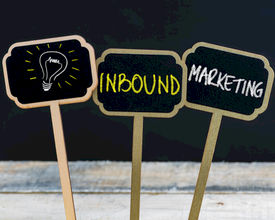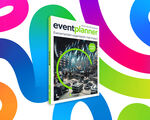From its beginning, inbound marketing grew into a powerful tool for entrepreneurs and marketers who want to build stronger relationships with their leads and transform strangers into loyal customers.
Known as a technique for attracting customers via SEO (search engine optimization), content marketing, and social media promotion, inbound marketing became a real opportunity for event promotion.
According to the leading inbound marketing company Hubspot, there are four phases of the inbound methodology. The first phase is to attract people and visitors through blogging, content strategy, and social media. The second one is to convert these visitors into leads, which you can do via opt-in forms, meetings, etc. The third phase is to 'close the deal', transforming your leads into real attendees. You can achieve it thorough pipeline management, nurturing leads, newsletters, ... Finally, the fourth phase is to delight your attendees, making them the promoters of your brand (or event).
Although this strategy requires more time, effort, and dedication than just paying for Facebook ads about the event, if done correctly, the results can overcome your expectations. To help you start applying some inbound marketing techniques when promoting your event, we came up with a list of steps you can follow:
Step 1. Generate and publish highly targeted and useful content
Before planning an event, you should know your audience. This means you must define your target group and potential attendee profiles. Who are they? What problems do they encounter? How will your event and content be useful for them? Answer these questions, then start creating and publishing content that’s aligned with your target groups’ interests. This is the only way to really present your value and become interesting for your potential attendees.
Step 2. Write for your target group, but don't forget about Google
If you want to promote your event via inbound marketing, you must start long before the planning process begins. This will provide enough time for Google to rank your site and to position it correctly. When creating your event's web page and blog, look for the keywords your target group uses for searches, then use those seed or long-tail keywords in the texts you’ll produce and publish. This will help you reach a high level of search engine optimization (SEO) and make your content searchable, therefore boosting your chances to be found.
Step 3. Increase your content's quality
There's no exact formula for creating viral content; however, there are some good practices you can use. For example, you may want to write long-form blog posts, since this type of content gets more traffic. Make sure to provide actionable tips that are easy to apply and provide a clear call to action. Organize your blog post into sub-headlines to help your readers comprehend through the content easily. You can also use images or infographics to better explain some of your concepts or steps.
Step 4. Define your content communication methods
Although SEO is a good strategy to help people find your content easier, you can't rely on it solely. You must actively promote your site or blog on different online platforms. So you'll need to find out where your target group hangs out online.
Are they a LinkedIn crowd? Or maybe they're mostly on Facebook? Search for groups of interest on different platforms, interact with the people there, help solve their questions, and occasionally link to your content (only in cases where it's truly useful for the group members; otherwise, it may be seen as spam). Be active in promoting your content. By doing so, you’ll increase the organic traffic to your site and position the image of your event on digital platforms, and subsequently reach a bigger audience.
Step 5. Strengthen the relationship with industry influencers
Another way of promoting your content is by building relationships with industry influencers (depending on your niche). However, you can't just ask these people to repost the link to your article or site. You must find ways to add value to their own endeavors. For example, you could mention them in your posts or ask them for an interview, or even offer them the possibility to speak at your event.
Call to action
If you decide to use inbound marketing to promote your next event, always remember that you have to start applying this strategy long before the actual planning. This will give you time to create truly useful content, gain natural traffic, reach out to industry influencers, and generate high-quality leads who will subsequently become your event attendees.







